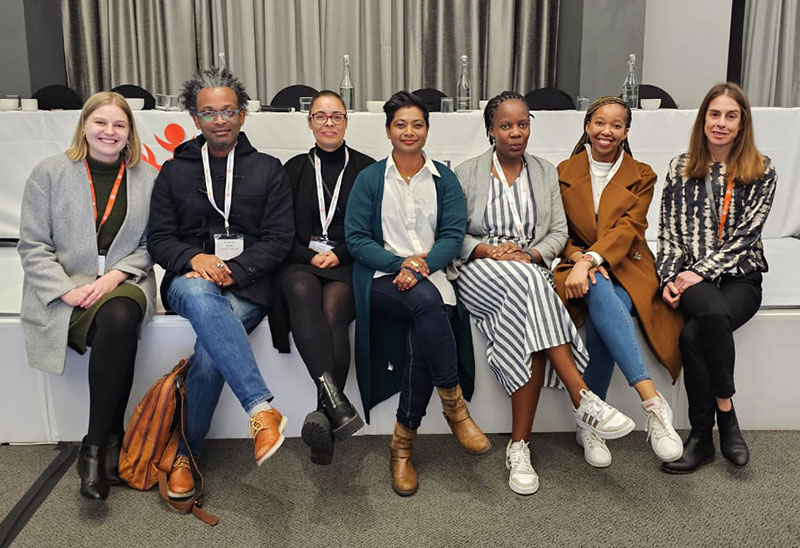UCT receives Siyaphumelela Network Partner Award
22 March 2024 | Story Niémah Davids. Read time 3 min.
The Siyaphumelela Network Partner Award has claimed its place on the University of Cape Town’s (UCT) awards shelf, in recognition of the institution’s ongoing efforts to fast track equity and student-centred transformation.
The award was created and presented by Achieving the Dream (ATD) – a United-States-based non-profit organisation, which was established to close the achievement gaps and accelerate student success. In South Africa, ATD is associated with the Siyaphumelela Network – a group of 17 local partner universities that work together to support a national mandate to improve student success in higher education.
UCT joined the network in 2020, after accepting the three-year Siyaphumelela Grant. Dr Riashna Sithaldeen, the deputy director of the Academic Development Programme in UCT’s Centre for Higher Education Development (CHED), leads with implementing the grant’s projects at an institutional level.
“UCT has a long and strong history of academic development, which can easily contribute to the national and regional network developed around Siyaphumelela.”
“We are thrilled with this award. UCT has a long and strong history of academic development, which can easily contribute to the national and regional network developed around Siyaphumelela,” said Dr Sithaldeen. “We’ve already benefited greatly from this network and will continue to do so, especially as we look at ways to provide better student experiences that deal effectively with persistent inequality and one that will help our graduates shape the future of society.”
‘A complex challenge’
But what’s the key to advancing equity and accelerating student-centred transformation? Sithaldeen described it as a complex challenge with many connected solutions. However, from Siyaphumelela’s perspective, she said, the goal is to broaden evidence-based student success strategies and use data analytics to improve their experiences, as well as graduation rates.

To date, student-centred initiatives supported by Siyaphumelela and put into practice by UCT’s Academic Advising Initiative include the UCT Chatbot – a bot that provides important information about the ins and outs of the institution and forms part of the Central Advising and Referral Service (UCT_CARES) – and the Phambili programme for academic recovery, a general self-development programme aimed at supporting student academic recovery. In addition, and integral to the project’s success, is the collaboration with the Data Analytics for Student Success (DASS) at UCT.
“Ultimately, it all comes down to building institutional capacity, and collecting and analysing data to help us determine when and why students are not succeeding. This will help institutions focus on implementing effective interventions through the learnings of the expanded network,” she said.
“At UCT we are always working on piloting and developing innovative tools and programmes in academic advising to improve the student experience and specifically work towards equitable outcomes. We look forward to a continued partnership with Siyaphumelela and contributing to and learning from this collaboration.”
 This work is licensed under a Creative Commons Attribution-NoDerivatives 4.0 International License.
This work is licensed under a Creative Commons Attribution-NoDerivatives 4.0 International License.
Please view the republishing articles page for more information.
Centre for Higher Education Development
In the news


.jpg)
















































































































































































































